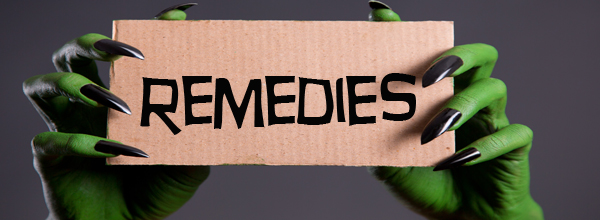When Bad Things Happen to Good People…On the Internet
Litigation Attorney
by David Gurnick
818.907.3285
The internet has generated countless new ways to communicate and share thinking. Some posted information is negative, which can still be useful when messages are truthful, in good taste, and constructive. But some negative posts are false and abusive.
Some ways and places that negative comments get posted are:

- Comments on social media like Facebook or Twitter.
- Negative comments on review sites, like Yelp, ConsumerAffairs.com, TripAdvisor.com or RipoffReport.com.
- Negative websites, like disney-sucks.com, paypalsucks.com, allstateinsurancesucks.com, verizonpathetic.com, or untied.com.
- Negative posts will appear soon on new .sucks domains, which recently became available.
- Revenge posts arising from personal and business relationships.
Avoid Knee-Jerk Reactions
There are numerous ways to react to negative comments on the internet. Sometimes it is better to ignore the comment. A tweet or Facebook post, for example, may come and go quickly, replaced by other comments and updates. In contrast, a response may generate more negative comments.
After Toys R Us sent a cease and desist letter to an individual who used Roadkills-R-Us on the internet, the recipient posted the chain of correspondence, and created a satirical website. These have stayed online for years. It might have been better for the company to not respond.
Another possible reaction is to encourage others who are satisfied or have good things to say, to leave positive feedback online. Those comments help move negative messages down in prominence.
When a post is too negative or problematic to ignore, some legal steps can be considered.
Anonymous comments on public forums or message boards present a particular challenge. This is because federal law protects their hosts. The Communications Decency Act (“CDA”) makes a forum or message board operator immune from liability for content created by third parties.
Congress passed the CDA to promote unfettered, unregulated free speech on the Internet. There is no need to protect speech everyone likes. CDA protection is for negative, hostile speech.
But CDA immunity does not prevent all relief for someone who is victimized by falsehoods, libel, slander, defamation or other Internet abuse. Some courses of action are available for victims.

When a false or harassing post appears, a wise step is to print it or make a screen shot, as a record of the content. This is important because the comments may be changed or deleted before relief can be obtained.
Consider the nature of the site where the improper statement appears, and whether the message may be supplanted or lowered in prominence by later posts, making it unnecessary to take action.
If necessary to respond, consider whether to do so publicly or privately or both. Sometimes a useful combination is a brief public reply, calmly refuting the false statement, and a thoughtful private response. Sometimes a grievance can be resolved by private communication. An unhappy customer may be willing to remove the prior comment, or post a further comment that the matter was resolved.
A cease and desist letter may be appropriate. Such letters may need to be stern and firm. But sometimes a lighter tone is useful. Jack Daniels, the famous whiskey distiller, sent one of the nicer cease and desist letters, an example worth following in some circumstances.
For remarks that exceed the bounds of propriety, it is sometimes possible to contact the website operator and ask that the comment be removed.
Some hosts will cooperate, whether as a matter of policy, or courtesy or goodwill. But many sites that host forums will not cooperate in removing content. For example, ripoffreport.com and consumeraffairs.com claim they will not remove any post whatsoever.
Internet Defamation & Libel
A web host’s immunity from liability does not protect people who post false and defamatory messages. They may be sued for defamation.
Charles Schwab, the well-known founder of Charles Schwab Corporation, brought a libel suit over statements in the website www.chuck-you.com. Currently (June 2015), the case is pending in a California Superior Court. In 2011 a medical school in Antigua, obtained an injunction in a U.S. court against a former student who was defaming the school on the internet.
Bringing a claim is more challenging when speakers post anonymously. Courts have upheld a First Amendment right to speak anonymously. But the First Amendment does not protect defamatory speech. So trying to stay anonymous does not always work.
Internet connections are assigned a numeric Internet Protocol address. When posting online, the host server logs the originator’s IP address. Sometimes, the numeric address can be obtained by subpoena to the host website and internet service provider. This process may expose the identity of whoever made an offending comment.
In one case a town official sought a subpoena to identify the anonymous poster of defamatory statements on a website. The Delaware Supreme Court ruled the plaintiff must try to notify and give the anonymous speaker a chance to oppose the subpoena request. The plaintiff was required to also show the court he could prove defamation. These are not easy procedures, but they provide a course of action that may expose anonymous speakers so they can be sued.
More recently, a New Jersey court agreed to issue subpoenas so a hospital could identify perpetrator(s) who hacked into its intranet and sent defamatory emails to employees. In 2012 a couple in Texas won a judgment of more than $13 million against (originally) anonymous posters who defamed them on an internet forum.
Other Remedies for Haters & Trolls

Some other courses of action include posting other content on the internet, using some of the same key words that are in the offending comment, so that search engine results will generate the later posted content; and asking Google to remove content pursuant to Google’s removal policies.
Similarly, some sites that post comments have policies or procedures addressing removal of inappropriate content. Ripoffreport.com, as an example, has an arbitration procedure. For a substantial fee, which obviously generates revenue, they will conduct an arbitration to determine if content should be removed. The ethics of this policy are questionable, but the cost is less than full blown litigation. A number of third party companies offer to assist in removing offending content, though at this time the effectiveness of these services is unclear.
For content that contains any threatening message, it may be appropriate to notify police authorities.
David Gurnick is a Litigation Attorney at our firm.
